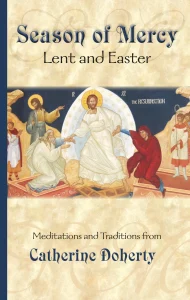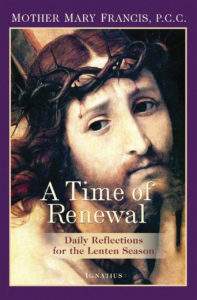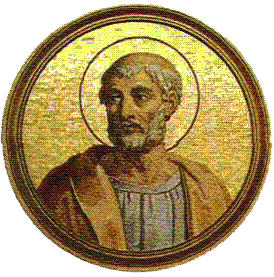Podcast: Play in new window | Download (Duration: 7:51 — 5.5MB) | Embed
Subscribe: Apple Podcasts | Spotify | Amazon Music | Android | Pandora | iHeartRadio | JioSaavn | Podchaser | Gaana | Podcast Index | Email | TuneIn | Deezer | Anghami | RSS | More

SM7 – To Fast, Part Two – Season of Mercy: Lent and Easter by Servant of God Catherine Doherty
An excerpt from Season of Mercy: Lent and Easter:
 To Fast, Part Two
To Fast, Part Two
“Fasting is the song of a soul in the process of liberation. It is a door to that dispossession which allows me to give up my will to God. Fasting is the shepherd’s crook that leads you and me on the road to the real pilgrimage to God. With that crook, one moves faster. Fasting is the following of Christ, not walking behind him, but running as men and women in love run toward him whom they love.
I am the sister of Jesus Christ, who came to do the will of the Father, and so I desire to do the will of the Father. The will of the Father can be difficult, a heavy burden on my selfishness. By fasting from all my appetites—cigarettes, food, and so forth—I finally develop my will to a strength in which I can shoulder the demands of God that seem to be so heavy on me. And I find that they are not heavy at all, because I have given up that which stood between me and God. This is our consolation. And we discover that one of the biggest by-products of fasting is a new freedom.
Here we have to make very certain that we do not think that we are appeasing God by our fasting. We do not say, “Here are my sins, Lord, and here is my payment or atonement for them.” No. We fast to seek the face of our Father. We fast because heaven is taken by violence, violence to oneself, violence to all those things in us that are not of God. A fast is to remove all that is not of God in us.”
Doherty, Catherine. Season of Mercy: Lent and Easter (Seasonal Customs Vol. 2) (pp. 48-49). Madonna House Publications. Kindle Edition.
Catherine Doherty was born into an aristocratic family in Russia in 1896, and baptized in the Russian Orthodox Church. Because of her father’s work, she grew up in Ukraine, Egypt, and Paris. Many different strands of Christianity were woven into the spiritual fabric of her family background, but it was from the liturgy of the Russian Orthodox Church, the living faith of her father and mother, and the earthy piety of the Russian people themselves that Catherine received the powerful spiritual traditions and symbols of the Christian East. Catherine fled to England during the Russian Revolution, and was received into the Catholic Church in 1919. The cause for her canonization has been officially opened in the Catholic Church. More information about Catherine’s life, works, and the progress of her cause can be found at: www.catherinedoherty.org and www.madonnahouse.org.
Discerning Hearts is grateful to Madonna House Publications whose permission was obtained to record these audio selections from this published work.





